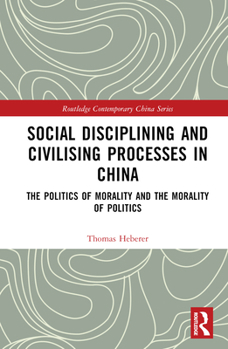Social Disciplining and Civilising Processes in China: The Politics of Morality and the Morality of Politics
This book argues that a major part of the Chinese government's road map, formulated in 2017, to modernise China comprehensively by 2049 is the process of social disciplining. It contends that the Chinese state sees that modernisation and modernity encompass not only economic and political-administrative change but are also related to the organisation of society in general and the disciplining of this society and its individuals to create people with "modernised" minds and behaviour; and that, moreover, the Chinese state is aspiring to a modernity with "Chinese characteristics". The question of modernising by disciplining was extensively dealt with in the twentieth century by leading Western social scientists including Max Weber, Norbert Elias and Michel Foucault, who argued that disciplining, extending from external coercion towards the internalisation of restraints, is indispensable for achieving social order and thereby for "civilisation" -but defined from a European perspective, in relation to developments in Europe. This book therefore not only discusses the Chinese experience of social disciplining, but also, by looking at a non-Western society, identifies universal tendencies of societal change and social disciplining and separates them from particular occurrences.





